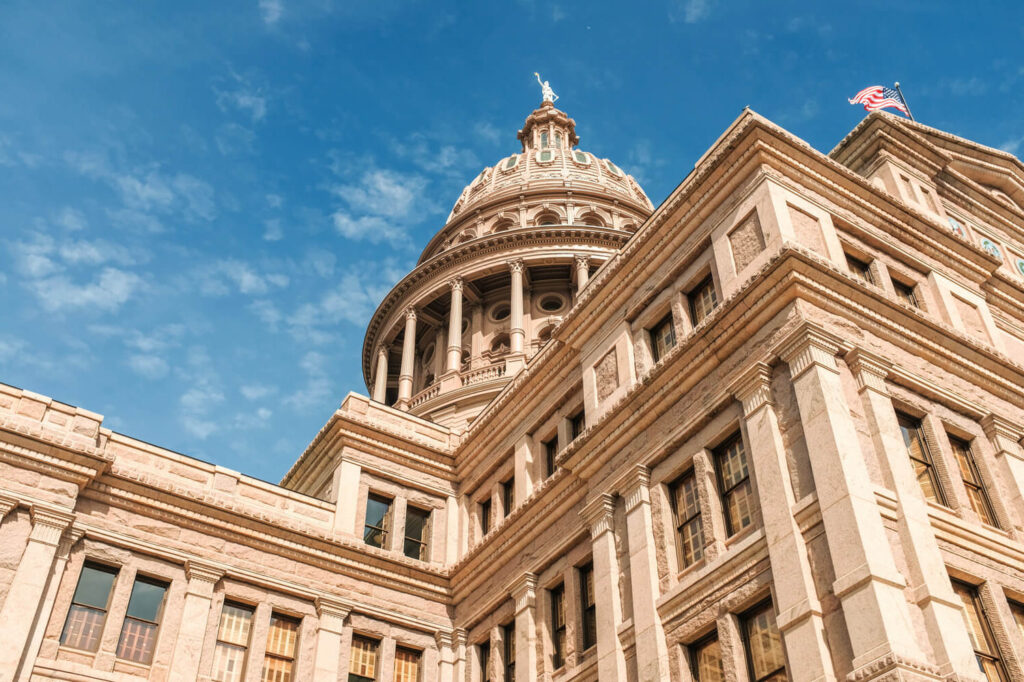Why States Must End Junk-Fee Creep
- By Rohit Chopra

In an ideal world, firms would offer better products at more competitive prices to attract customers, but in today’s markets, especially in the digital world, we don’t see this. Rather than fairly compete, some firms wonder: How can we bait consumers with one price and then charge them a higher one?
In January 2022, the Consumer Financial Protection Bureau (CFPB) launched an initiative to hear from the public about the proliferation of fees in the economy. We called these charges “junk fees.” We subsequently led efforts across federal agencies to stop the scourge of these fees. But there is growing concern that key protections guarding against junk fees will disappear or go unenforced. States will need to fill the void.
- Junk fees. Junk fees are unavoidable, unexpected, excessive, or unnecessary charges imposed for fake or even worthless services. Even when a service is legitimate, companies that have figured out ways to sidestep meaningful competition have the power to exploit their position and pad their profits with junk fees. Over time, federal agencies and state legislatures uncovered a wide range of these fees imposed on families and small businesses.
- Surprise or ridiculous fees. Many Americans explore a potential purchase based on an advertised rate. Rather than advertising the typical cost for the product or service, the company might tack on charges for services that are fake or worthless, or would normally be included in the purchase price. In 2023, CFPB found that a bank was charging a “paper statement fee” even though it was neither printing nor mailing any statements. The CFPB took action against several banks that processed payments in ways that triggered additional overdraft fees, when a consumer would not normally expect one.
- Unavoidable upcharges. There are many instances in which a company can milk consumers when it knows they have no power to use an alternative. For example, many tenants report that their landlord requires them to use a third-party payment platform to pay their rent. However, these renters are charged an exorbitant “convenience fee” to use a debit card or electronic bank transfer when there is no other payment option.
- Distortionary or coercive fees. Some businesses have developed profit models that rest heavily on penalty or closure fees, such as large termination fees. This can trap the consumer in a bad deal with a specific company. For example, if a corporate landlord charges an unreasonable move-out fee to a tenant completing a lease, this can lock in a tenant who might otherwise wish to relocate. In other cases, companies have created business models that are dependent on late fees and other penalties, rather than the service itself. This gives these companies an incentive to create obstacles or confusion, since it can generate more junk fees.
Recent action by federal agencies to combat junk fees
Since 2022, federal policymakers have made a slew of efforts to tackle junk fees across sectors of the economy:
- Overdraft fees, credit card penalties, and other financial account fees. To address concerns about abuses with overdraft fees, the CFPB revisited a 1969 exemption to the Truth-in-Lending Act rules that were designed for paper checks sent through the mail. The updated rules require very large banks to fully disclose the interest rate charged on overdraft loans, just as they would for credit cards and other lines of credit. Alternatively, these banks could keep their fees at a reasonable amount in line with national averages or their costs. To combat the distortions in credit card late fees, the CFPB took actions to vindicate a 2009 federal prohibition on unreasonable or disproportionate penalties. Under a 2010 loophole, banks could completely evade the prohibition if they charged less than approximately $30. The CFPB worked to close the loophole, which could continue to allow credit card companies to penalize borrowers in multiple ways but would ensure the penalty fee was reasonable. As of early 2025, these rules were not expected to fully take effect.
- Live-event ticketing and short-term lodging. In 2022, the Federal Trade Commission began exploring rules to limit junk fees in industries subject to its jurisdiction. In 2024, it finalized a rule requiring businesses to clearly and conspicuously disclose the true total price, inclusive of all mandatory fees, whenever they advertise the price of live-event tickets or short-term lodging. It is uncertain as to whether the FTC will enforce the rule or finalize additional junk-fee prohibitions.
- Family seating on airplanes. Many U.S. airlines have imposed a fee on parents traveling with their small children. At the urging of Secretary of Transportation Pete Buttigieg, Congress enacted a new authority for the Department of Transportation to ban these exploitative fees. In addition, the Department of Transportation advanced additional rules to ensure that airlines clearly disclose baggage and other key fees before a passenger purchases a ticket.
- School lunches. Many parents must now pay for school meals for their children using electronic payment services. Noting that schools were partnering with third-party payment platforms that imposed high “reload” fees, the U.S. Department of Agriculture announced policies that require schools to offer a free way to pay for students receiving federal assistance.
Federal agencies also address a wide range of other junk fees, including fees that hit people when renting a home, purchasing a car, buying textbooks for college, and more. However, some of these efforts will be reversed or will not be enforced. This means that state governments must now play a bigger role in protecting consumers and small businesses from the creep of junk fees.
How states can wipe out junk fees
State policymakers are well-positioned to tackle junk fees through legislation, regulation, and enforcement. We have seen a broad range of states, from California to Minnesota to Florida, propose initiatives targeting bogus fees, including state attorneys general prosecuting junk-fee abuses and states proposing regulations to limit such fees. However, many states have primarily focused on disclosure when what’s needed is a comprehensive, step-by-step approach:
- Conduct a statewide public inquiry into junk fees.
State officials can conduct a statewide effort to learn from the public and experts on junk fees that are affecting families and businesses. Members of the public should be able to submit stories and complaints on inappropriate fees. States may be able to utilize their state attorney general’s complaint-intake function. Existing public databases can also provide insight into how fees are harming the public in specific industries.
- Enact a statewide prohibition on charging consumers junk fees.
Many states lack a strong statute protecting the public from junk fees. The statute should include a number of key elements.
First, the statute should forbid pricing that excludes mandatory fees imposed by the seller. Consumers are increasingly confused by the shifting nature of pricing, including when surcharges are imposed and when tips are expected. This is especially problematic when sellers advertise an atypical price that excludes mandatory charges or when additional fees are disclosed after a consumer inputs payment information. Existing law prohibiting deceptive practices has not been sufficient to deter some of these abuses. States can enact laws that require any advertisement or display of pricing to include all mandatory fees.Second, the statute should ensure that “captive” consumers are protected from price gouging. When a consumer is forced to use a particular ancillary product or service rather than being allowed to shop around, state law should ensure that the cost is not simply a disguised junk fee. In addition, a strong statute would ban penalty fees that are profitable for the seller. Laws enacted by state legislatures should seek to deter unlawful conduct and make sure that civil monetary penalties are rightfully paid to the public. Corporate penalties imposed on consumers should reflect the seller’s costs or a reasonable interest rate and not be used as a tool to boost profits.
Third, state law should codify protections on homeowners and renters. Given the serious difficulty across the country for families to obtain housing, it is critical that states assure some baseline level of protection. For example, state law should clearly prohibit the solicitation and collection of “application fees” for nonexistent apartments. Application fees should reflect reasonable costs for processing, rather than being used as a profit driver. Move-out fees and other fees should not be used to coerce residents. States should also closely review problematic practices and fees in closing costs on home purchases and mortgage refinancing.
Fourth, state legislatures can enact statutes making existing federal rules related to junk fees a violation of state consumer-protection law. This can provide ongoing protections even where federal agencies cease to enforce the law or agree to roll back junk-fee prohibitions.
Fifth, the statute should impose serious penalties, including criminal sanctions, for charging fees on fake services. Existing federal law prohibits using mail or electronic methods to defraud consumers. However, there has been little enforcement. States should unambiguously prohibit these junk-fee scams.
- Ban junk fees imposed on small and independent businesses.
Many small businesses must utilize third-party services imposed upon them. For example, franchisees operating hotels or quick-serve restaurants might be required to use a specific payment-processing provider to accept credit cards as part of the agreement with their franchise chain. This allows the franchise chain to negotiate an inflated, noncompetitive fee structure, where the chain might receive kickbacks or other gifts.
Other small businesses, including auto dealers and community pharmacists, have been subjected to anticompetitive fees by larger companies. States can restrict the ability of large corporate actors to impose such fees on small businesses that are not given a choice of provider. Similar actions can be taken to protect workers who use dominant platforms, such as rideshare services.
- Reform fees and penalties imposed or facilitated by public entities.
Fees and penalties can be significant sources of revenue for states. However, some states have, often inadvertently, permitted unreasonable fees.
Many states and state agencies set fees for government services, such as the registration of a car, marriage, or will. Governors should require reviews of these fees to determine whether they represent a reasonable cost to recoup. In some cases, these fees can be eliminated. State legislators should also codify the criteria for setting fees for basic services.
While fines and penalties play an important role in deterring unlawful conduct, it is important that states do not become reliant on these for basic funding for government services. Not only can this create incentives to misdirect public-safety resources, but this revenue can be volatile and might disproportionately be borne by lower-income families.
State legislators should ensure that any new statutes are broadly enforceable, allowing attorneys general to bring claims across sectors, as well as individual state agencies and localities to pursue claims administratively. Giving individual consumers and businesses the ability to challenge unlawful junk fees would also reduce burdens on state enforcement.
In some contexts, states will need to consider arguments in the cases where federal law purportedly preempts or deletes state laws. States can fashion laws to address some of these concerns. They may face obstacles when seeking to protect consumers doing business with airlines and nationally chartered banks, but they are not completely foreclosed.
In America, states have been on the front lines of ensuring that fraud and deception do not infect local economies. While federal laws and regulations provide some safeguards against junk fees, there are many sectors of the economy where such fees are too common or where enforcement is too lax. By strengthening statutes and enforcement mechanisms, state governments can protect families, workers, and honest businesses.
About The Author
Rohit Chopra served as the third director of the Consumer Financial Protection Bureau (2021–2025), as a member of the FDIC board of directors (2021–2025), and as a commissioner on the Federal Trade Commission (2018–2021).



